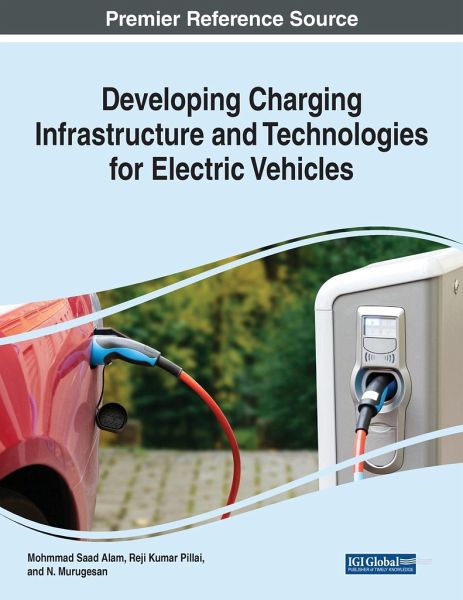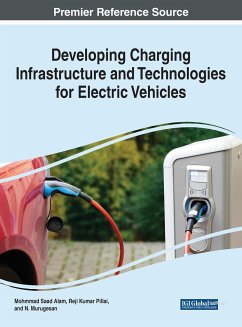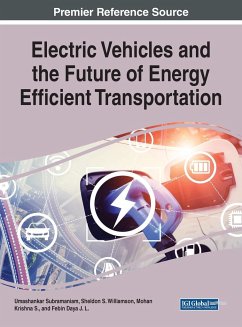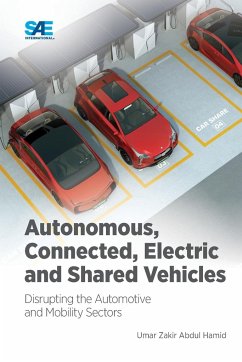
Developing Charging Infrastructure and Technologies for Electric Vehicles
Versandkostenfrei!
Versandfertig in 1-2 Wochen
195,99 €
inkl. MwSt.

PAYBACK Punkte
98 °P sammeln!
The increase in air pollution and vehicular emissions has led to the development of the renewable energy-based generation and electrification of transportation. Further, the electrification shift faces an enormous challenge due to limited driving range, long charging time, and high initial cost of deployment. Firstly, there has been a discussion on renewable energy such as how wind power and solar power can be generated by wind turbines and photovoltaics, respectively, while these are intermittent in nature. The combination of these renewable energy resources with available power generation sy...
The increase in air pollution and vehicular emissions has led to the development of the renewable energy-based generation and electrification of transportation. Further, the electrification shift faces an enormous challenge due to limited driving range, long charging time, and high initial cost of deployment. Firstly, there has been a discussion on renewable energy such as how wind power and solar power can be generated by wind turbines and photovoltaics, respectively, while these are intermittent in nature. The combination of these renewable energy resources with available power generation system will make electric vehicle (EV) charging sustainable and viable after the payback period. Recently, there has also been a significant discussion focused on various EV charging types and the level of power for charging to minimize the charging time. By focusing on both sustainable and renewable energy, as well as charging infrastructures and technologies, the future for EV can be explored. Developing Charging Infrastructure and Technologies for Electric Vehicles reviews and discusses the state of the art in electric vehicle charging technologies, their applications, economic, environmental, and social impact, and integration with renewable energy. This book captures the state of the art in electric vehicle charging infrastructure deployment, their applications, architectures, and relevant technologies. In addition, this book identifies potential research directions and technologies that facilitate insights on EV charging in various charging places such as smart home charging, parking EV charging, and charging stations. This book will be essential for power system architects, mechanics, electrical engineers, practitioners, developers, practitioners, researchers, academicians, and students interested in the problems and solutions to the state-of-the-art status of electric vehicles.












